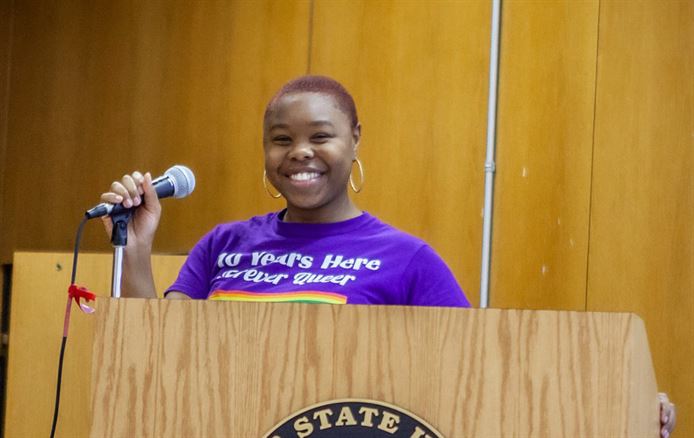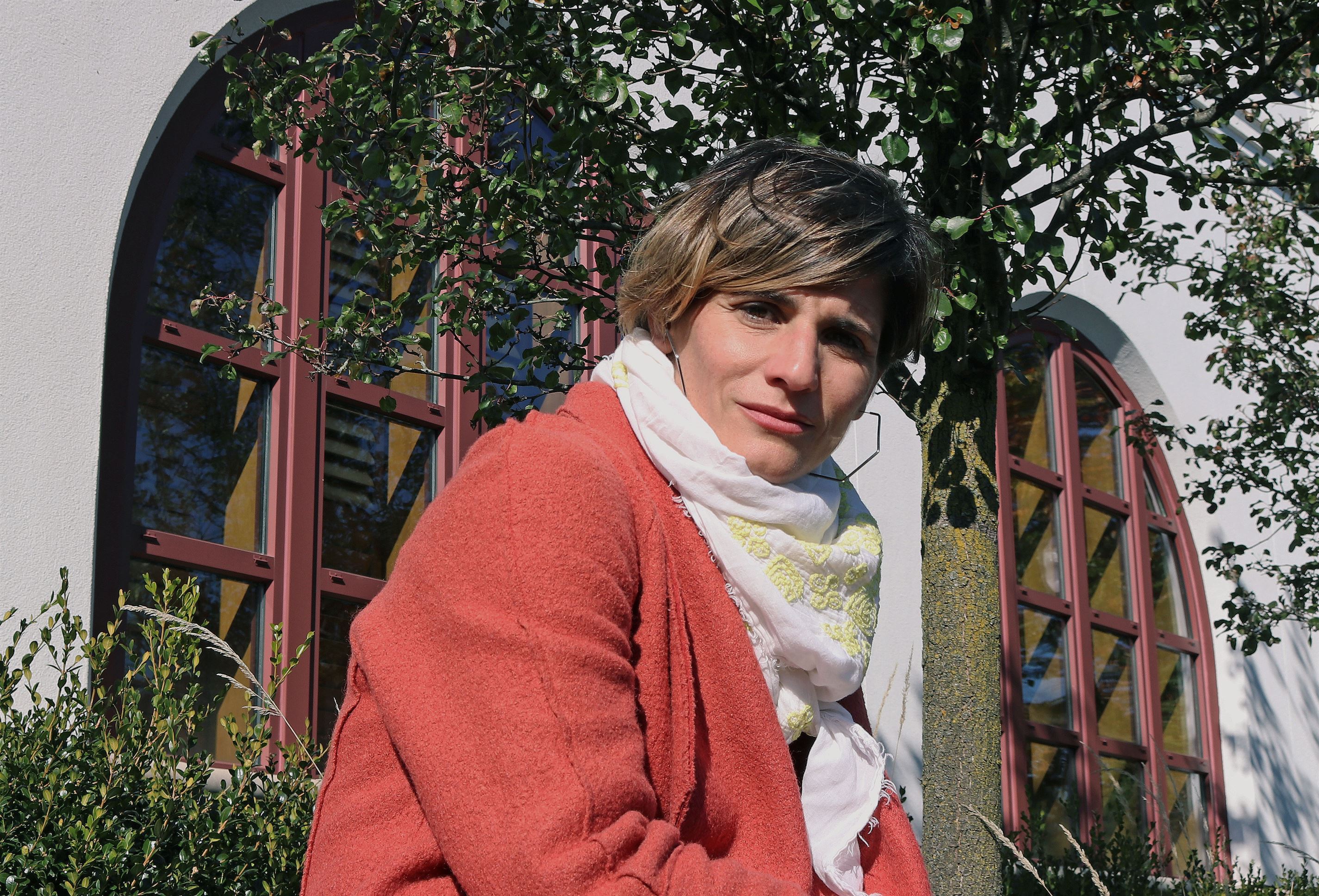Update: The student quoted in this article was originally referred to under the alias, Victor Kamal. He has decided to use his real name, which is updated in the article to Kei Valdez.
Earlier in the semester, Kei Valdez, a senior English major, was deadnamed for the first time in the two years he attended Montclair State University.
Deadnaming is the act of calling a transgender individual by their birth name, even though they have changed their name as a part of their gender transition.
Valdez identifies as a transgender man and changed his birth name under his NEST account to his chosen name. Needless to say, he was taken aback by the incident when it had happened.
“My art printing course roster had my deadname, and my heart dropped when I heard it,” Valdez said. “I didn’t answer the substitute professor because then everyone would think that was my name when it’s not.”
Montclair State is one of the top 25 LGBTQ+ friendly colleges in the nation and provides transgender and nonbinary students with the option to change their name under NEST.
Professors get their rosters from one of two places: Canvas or Banner. While both reflect preferred names, Banner maintains legal names of all students for registration, transcripts and documentation purposes. According to Andrew Mees, the university spokesperson, certain faculty, particularly those who are advisors, have access to administrative pages on Banner for registration purposes. When this issue arises, it is typically a result of the professor having the roster from Banner.
Having the roster from Banner can lead to transgender and nonbinary students being deadnamed and misgendered as the professor can mistakenly read the deadname instead of the preferred name. It can trigger the student’s gender dysphoria, which is when someone who doesn’t identify with their birth sex suffers from extreme depression and anxiety as a result.

Ebony Jackson is the assistant director of the Office of Social Justice and Diversity (OSJD).
Photo courtesy of Ebony Jackson
Ebony Jackson, the assistant director of the Office of Social Justice and Diversity (OSJD), said this is not an uncommon occurrence on campus.
“Before the pandemic, I’d have a handful of people report these instances,” Jackson said. “I [ask] students if they would prefer to speak to their professors or if I should step in.”
Jackson said most professors are understanding when they are made aware of the situation.
“Whenever I bring this to the professors’ attention, it is never malicious or hateful,” Jackson said. “They just didn’t know.”
Many professors are unaware of the importance of pronouns and how they impact their transgender and nonbinary students. If they are aware, some are unsure of how to approach the issue without offending their students.
However, this is still frustrating for the LGBTQ+ community, Valdez notes.
“None of my professors ask about pronouns, but they always ask about interests,” Valdez said. “Why do they need to know my interests compared to my pronouns?”
Jessica Restaino, the previous director and a current professor in the gender, sexuality and women’s studies department, discussed her experience of realizing this mistake.

Jessica Restaino said she attempts to avoid deadnaming and misgendering in her classes.
Julian Rigg | The Montclarion
“[I went to the] Diversity Summit hosted by the OSJD that brought students, faculty and professors together to talk about LGBTQ+ safety in classrooms,” Restaino said. “A transgender student presented on the importance of asking preferred names and pronouns, and it hurt that maybe I deadnamed or misgendered someone. And I decided to never read from the roster again.”
Jackson, who hosts the Diversity Summit and Safe Space training, provided several ways to avoid deadnaming and misgendering someone.
“[Professors] can use name tags in class or have a seating chart with everyone’s information,” Jackson said. “They could even create [an] assignment to post a picture of themselves for class introductions.”
In response to her mistake, Restaino created a survey asking students for their preferred names, pronouns and even small details about themselves. Restaino says this creates a safe space in classrooms and allows professors to learn more about their students in the process.
“[Doing this] starts a disclosed conversation where students don’t out themselves in the classroom,” Restaino said. “Giving this opportunity allows students to tell you something about themselves.”
Restaino also references the importance of staying informed and being open to learning more about these types of things.
“From one professor to another, we are stewed in a culture where we are not aware of these things,” Restaino said. “[Like] the times that I have messed up pronouns [and] I apologized to the student afterwards. I even have conversations with students where I know more about them and it is something you learn from.”
Valdez said using correct pronouns fosters a safer classroom environment.
“I ask professors to acknowledge pronouns and not just preferred names,” Valdez said. “It makes the classroom less anxiety-inducing and I know that I’m safe.”
Jackson offered her advice to professors to avoid misgendering and deadnaming.
“It is not really a difficult issue, but professors need to offer that chance to students to properly introduce themselves,” Jackson said.
Editorial Note: The title of this article was changed from “Montclair State Transgender Student Speaks Out Against Faulty Systems” to “Montclair State Transgender Students Speak Out,” to reflect a correction brought to The Montclarion’s attention by Andrew Mees, a spokesperson for the university. The line, “However, when systems are rebooted, preferred names are not saved and the original names appear,” was removed and replaced with the correct information as to how professors obtain rosters with a student’s deadname.



